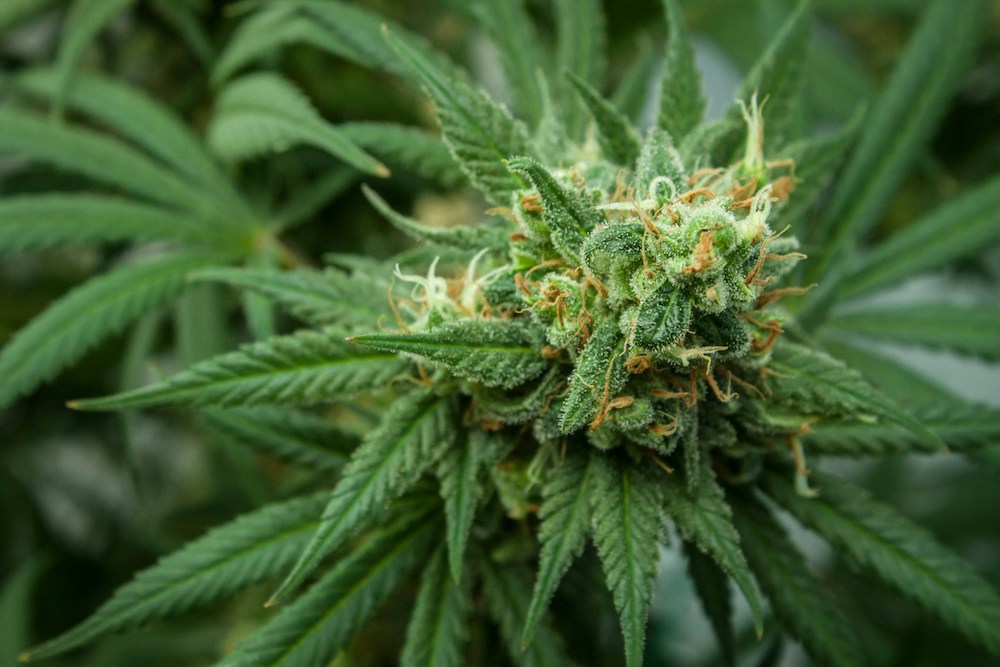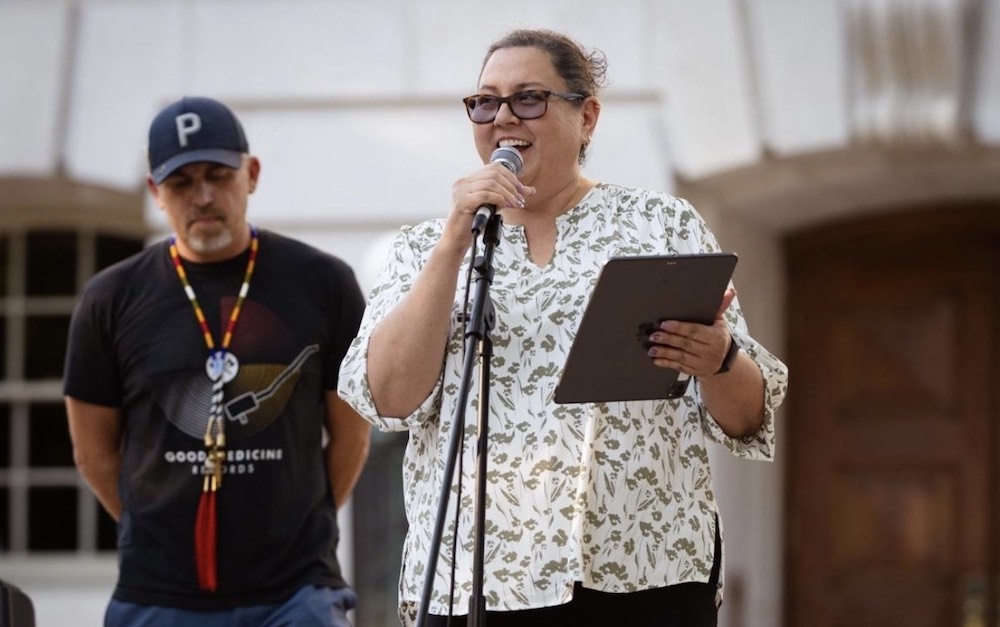
- Details
- By Kaili Berg
- Economic Development
Cannabis has been decriminalized on the Ho-Chunk Nation reservation in Wisconsin, paving the way for economic development in the future.
The drug was decriminalized by the tribe in late April. It’s not full legalization yet; instead, the Ho-Chunk Nation’s legislature announced that tribal police will no longer issue citations for possession. Even so, it represents the next step toward an eventual entry into the hemp and cannabis markets, tribal leaders say.
Kristin White Eagle, Ho-Chunk legislator for District 2, said the tribe began considering the cannabis industry in 2015.
While marijuana legalization in the state of Wisconsin hasn’t yet arrived, the hemp industry continues to grow, as do the business opportunities related to it, White Eagle said. Decriminalizing cannabis on the reservation opens the door to some of those opportunities.
White Eagle said looking ahead, the Ho-Chunk Nation’s way into the hemp industry can yield significant benefits for tribal members. That includes job creation, more revenue for tribal programs, increased access to medicinal benefits, and even housing. (That last one is due to the rise of hempcrete, a hemp-based building material previously reported on in Tribal Business News.)
“The (Ho-Chunk Nation) anticipates economic benefits of cannabis, including the creation of numerous jobs and the development of sustainable housing,” White Eagle told Tribal Business News. The Nation is also exploring the medicinal benefits of cannabis, White Eagle said, including its potential to help with opioid addiction.
The legalization for medicinal use could be a longer way off, though, according to Rob Pero (Bad River Band of the Lake Superior Tribe of Chippewa Indians,) owner of Wisconsin-based hemp seller Canndigenous and founder of the Indigenous Cannabis Industry Association (ICIA).
Ho-Chunk Nation joined ICIA as a member last year. Pero said he has consulted with the tribe on its eventual plans.
Right now, Pero’s advice is to get into industrial hemp, manufacturing hemp-based products such as biofuel, textiles, and hempcrete. The market for industrial hemp has grown rapidly, according to a report from analysis firm Grand View Research. That report placed the global market for industrial hemp at $5.4 billion in 2023. The market stands to grow at a compound annual growth rate of 17% between 2024 and 2030.
Decriminalizing cannabis on the reservation is a good start toward opening the door to that industry, and other opportunities later, Pero said.
“In our opinion, if you're going to get into the cannabis industry, you should start growing hemp,” Pero told Tribal Business News. “I think what Ho-Chunk has done is taking a pragmatic yet proactive step toward what it really takes to investigate the industry. If you don't have cannabis decriminalized, then it's almost a bit of a paradox to explore something your own constitution says you can't do yet.”
 Ho-Chunk Nation legislator Kristen White Eagle (right) speaks at a tribal conference around cannabis in 2024 while Indigenous Cannabis Industry Association Founder Rob Pero looks on. (Photo: Kaili Berg)
Ho-Chunk Nation legislator Kristen White Eagle (right) speaks at a tribal conference around cannabis in 2024 while Indigenous Cannabis Industry Association Founder Rob Pero looks on. (Photo: Kaili Berg)
Michael Decorah, a member of the St. Croix Chippewa Indians of Wisconsin, sits on the Wisconsin Committee for Tribal Relations, where he has advocated for implementing hemp and cannabis-positive policies. Seeing cannabis decriminalization on the Ho-Chunk reservation was a major step forward, Decorah said.
“We've been advocating for this, and I personally have been pushing for tribes to seize these opportunities,” Decorah said. “I'm very proud that (the) tribe has taken the lead in this area. I believe more tribes will soon follow.”
Decorah said eventually opening the doors to cannabis and hemp production would provide multiple paths to economic development. In addition to the same industrial hemp market Pero described, Decorah pointed to chances to test and process cannabis products for other companies.
Even beyond tribal enterprises, legalization on the reservation could provide ways for individual tribal members to start businesses, Decorah said. In turn, that would create demand for more products, potentially leading to more intra-tribal business and trade.
“Starting a company in this industry means you'll need products, containers, and other supplies. That creates a lot of great opportunities,” Decorah said. “This represents a unique opportunity, and tribes should definitely be part of it.”
Beyond the economic concerns are simple health outcomes, Decorah said. Discussions between Wisconsin tribes and the state have focused on legalization for medicinal purposes.
Medicinal cannabis could be used to treat everything from post traumatic stress disorder to opioid addiction. The latter is a crippling pandemic in Indian Country, per reporting by sister paper Native News Online.
“We've lost many people, and access to cannabis could benefit them, similar to states where it's legal,” Decorah said. “We've seen FDA recognition and reduced opioid use in states with legal cannabis, especially among veterans treating PTSD.”
Getting anywhere with legalization, medicinal or otherwise, means climbing over years of “stigma” around cannabis, Decorah said. The drug has been portrayed as a gateway to harder substances, rather than an alternative to opioids or other prescription medications, he added.
Pero echoed the sentiment. While Canndigenous has begun selling THC seltzers where they are legal, the drinks are hemp-derived. The business sticks to hemp, despite a desire to grow for medicinal uses, Pero said.
“I think in Wisconsin right now we're looking at one step at a time,” Pero said. “You can’t just throw everything down and expect everyone to get on board. I think there's a lot of education that has to happen in our state. There's just so much education around stigma, around past histories and even around our Indigenous communities.”
Even with the challenges ahead, Pero agrees that there’s a need for alternative medicine. Ho-Chunk’s decriminalization is a move toward someday making that medicine available, he said.
“Our state and our tribes will be better off if we have medicinal cannabis come in the right way,” Pero said. “I think a focus on plant medicine is critically important for our state — people need this for acute medical care.”
Whether it’s through industrial hemp or medicinal cannabis, Ho-Chunk wants to be ready to make a move, White Eagle said.
“By entering the cannabis market, we're aiming to capture a portion of these economic benefits,” White Eagle said. “Our people really want to see us move forward in this industry.”
Staff reporter Chez Oxendine contributed to this story.
